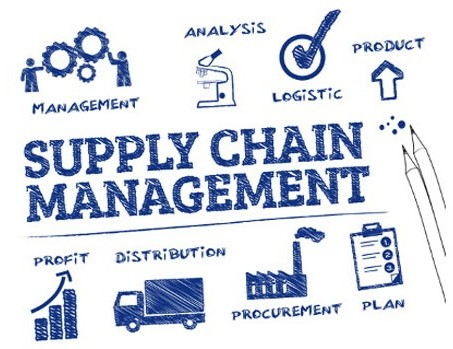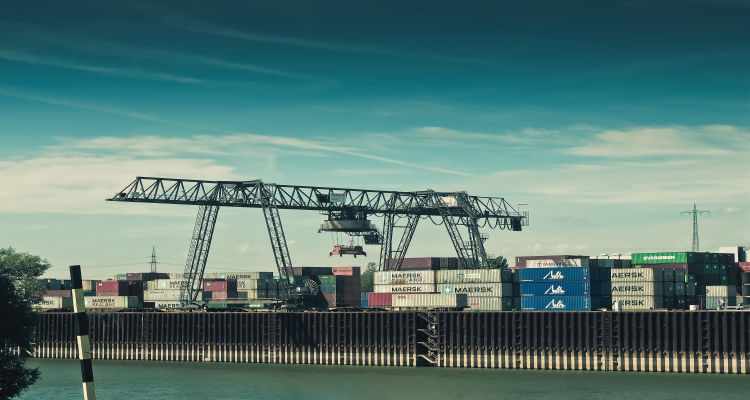What is Logistics Management?
Logistics can be defined as the art and science of managing and controlling the flow of goods, services, information and other resources like products and people, from the source of production to the market. The term logistics originated from Greek word ‘logos,’ which denotes ratio, word, calculation, reason, and speech. The concept of Logistics has been assumed to evolve from the military’s need to supply as they moved from one base camp to a forward position base.

What are the factors affecting logistics function?
• There is Lack of standardization because as new components are specified for each new product, then the time for the planning and procurement increases.
• There are very close tolerances and high finishes that tend to limit procurement from a few suppliers and henceforth hinders the efficiency of the logistics management.
• Also the efficiency of the production function highly affects logistics function.
• The overall effectiveness of production, planning and control impacts the flow of material.
What are the objectives of Logistics Management?
• To reduce the operating cost of physical material system.
• To minimize time spent at every stage of the chain from procurement to delivery to teh final customer.
• To add value at every stage of the logistic pipeline.
• To control and minimize inventory of raw materials, work-in-progress and finished goods.
• To improve the organizations image and competitive positioning in the market.
• To develop better communications platforms both internally and externally in the organization.
• To implement the principle of just-in-time for effective management.
• To promote co-operation and co-ordination within sub-systems for effective execution and management.
Types of Logistics Management
• Military Logistics: Military Logistics is a part of the supply chain that plans, implements and controls the efficient and effective flow and storage of goods, services& information between the point of origin and the point of consumption to the meet customers’ needs.
• Business logistics: Business Logistics was evolved only in the 1950s, defined as holding the right item in the right quantity at the right time for the right price. It is also referred as the science of process and incorporates all industry sectors.
• Production Logistics: Production logistics ensures that each machine and workstation is being supplied with the right product in the right quantity & quality at the right time.
Logistics Engineering – Logistic Engineering primarily deals with the science of Logistics. Logistics engineering as a discipline is also a very important aspect of system engineering that considers reliability engineering. Logistics Engineering can be described as the science and process wherein reliability, maintainability, and availability are designed into products or systems.
Productivity in Logistics
• Some of the partial measures being a ratio relating output to a single input like labour, materials or capital.
• It includes total factor or value-added productivity with the focus on sales less bought-in goods, materials and services.
• It also covers total productivity measures as a ratio of total output to total input.
These productivity measures should be considered as meaningful indicators in the control and analysis of logistics performance. Since such measurement provides a strategic focus to objectives that everybody in the organisation should understand and work towards.
Strategic Level Logistics
With reference to logistics management, the four primary factors in logistics strategic environment are –
• Competition
• Markets served
• Technology
• Stakeholders’ satisfaction.
Once these are factors are analyzed, then relevant performance measures can then be developed to examine the long-term success of the strategy and the primary determinant of that strategy.
Five distinct dimensions of service performance are,
• Tangibles: It includes physical facilities, equipment, appearance of personnel.
• Reliability: It refers to the ability to perform promised service, with dependability and accuracy.
• Responsiveness: It refers to the compliance to help customers and provide quick service.
• Assurance: It refers to the knowledge and consideration of employees and their ability to inspire trust and confidence.
• Empathy: It refers to the individualized attention provided to customers.
These essentials must be incorporated in the strategic thinking.
Concepts of Logistics to Supply Chain Management
Relationship between supply chain management and Logistics is bound to vary from firm to firm. For certain cases, supply chain management plays a principal role in sourcing and pricing logistics services. Now supply chain management focuses on all the major aspects of business across the supply chain that leads to business improvement including bottom line performance improvement. The concept of supply chain management stepped into the marketing world recently.
Supply Chain Management took passed through three phases –
- Phase I – Physical distribution management: First phase also better characterized as inventory push phase.
- Phase ll – Integrated logistics management: Second phase focuses on recognizing the importance of integrating operations within the organization such as sales, procurement, distribution etc.
- Phase lll – Supply Chain Management(SCM): Supply Chain Management extends the scope to link external partners like suppliers, vendors, distributors and customers with a view to deliver enhanced customer and economic value.
Benefits of applying Supply Chain Management (SCM)
• Reduced operational costs
• Improved flow of supplies
• Fall in delays of distribution and increased customer satisfaction
• Bringing compelling bottom line benefits to enterprise



